[in translation]
... At the moment when her victory was announced, the radiantly smiling Anson Chan stood in the entourage of her family and the pan-democratic core members and announced: "I now have the support of public opinion. I will reflect truthfully the demand for democracy for the Hong Kong people to the central government." She said that an important task after her election would be to communicate with the central government.
Upon information, Anson Chan's desire to "communicate with the central government" would be difficult to realize. The central government has no need to make contact with Anson Chan. First of all, Beijing does not believe that the ace-in-the-hole for the pan-democratic camp won the election in a convincing manner.
Beijing's assessment of the November 18 district council elections is that the people of Hong Kong have gone through a material change in their thinking in that they do not want to see the Hong Kong political figures opposing the central government anymore. Beijing's reasoning is based upon when Anson Chan was first put forward by the pan-democratic camp, this by-election was positioned as "democracy versus no-democracy." In the later stage of that election, they used instead slogans such as "emergency call to help Anson Chan" and "case a vote of conscience" to highlight the personal image of Anson Chan. This showed that the "universal suffrage" card of the pan-democratic camp was not playing well.
Furthermore, Anson Chan keeps emphasizing that she wants to communicate with the central government in order to distinguish herself from the pan-democratic camp. But the Beijing officials in charge of Hong Kong affairs think that it was futile because Anson Chan was asking for the pan-democrats to support her campaign while wanting to keep a safe distance from them.
Our understanding is that Anson Chan has no direct contact with the Beijing officials in charge of Hong Kong affairs. It is common knowledge that she does not get along with the National Political Consultative Conference vice-chairman and Hong Kong-Macau Affairs Office director Liao Hui. But she has some Hong Kong friends who have "direct contact" with the Beijing senior officials, and she has managed to make some contact through these friends. When these friends learned that Anson Chan was going to attend the march to support universal suffrage, they reminded her that she "must deal with the consequences" and they also disapproved of her decision to enter this election. Will these friends be willing to serve as the bridge to communicate with the central government now? That is questionable.
When Anson Chan said that "she now has the support to public opinion to communicate with the central government," this is going to sound like she is applying pressure to the central government. Informed sources in Beijing said, "Her public opinion support is limited to Hong Kong Island at just over 50% and so she does not represent all Hong Kong citizens." When Anson Chan said that she would push for universal suffrage in 2012, she is touching a sensitive Beijing nerve.
According to Chinese affairs commentator Johnny Lau, it is not so simple to communicate with the central government. "This was only a by-election and so Anson Chan's term will be over in just eight months. Beijing sees no compelling need to communicate with her. Otherwise, when the Legco elections are held next year and Anson Chan decides to run again, she and the pan-democrats would get a boost if the central government were to talk to Anson Chan now."
The other matter that makes Beijing unhappy is Anson Chan's "100% mortgage." case. During the election, the media reported that Anson Chan got a 100% mortgage from a bank more than a decade ago. According to the regulations in place back then, the banks have a 70% ceiling for mortgages. Back then, Anson Chan had explained that she did not obtain advantages. She also said, "If there is a problem with my character, the central government would not have appointed me as Chief Secretary (after 1997)." The relevant Beijing department is unhappy because they thought that Anson Chan was using them as the shield, and certain DAB legislators intend to pursue this case further.
The Chief Executive of the Hong Kong Special Administrative Region shall exercise the following powers and functions:
...
(5) To nominate and to report to the Central People's Government for appointment the following principal officials: Secretaries and Deputy Secretaries of Departments, Directors of Bureaux, Commissioner Against Corruption, Director of Audit, Commissioner of Police, Director of Immigration and Commissioner of Customs and Excise; and to recommend to the Central People's Government the removal of the above-mentioned officials;
Donald Tsang can recommend the removal of Tsang Tak-sing, but he does not have the power to dismiss him. You can pressure Donald Tsang to make that recommendation and then pressure the Central People's Government to make the actual removal. But you should not demand that Donald Tsang make the actual removal unless you hold no respect for the rule of law.
The above technical point was noted by Wong Onyin and not noted by any number of commentators and bloggers who wasted any number of words advocating the impossible.




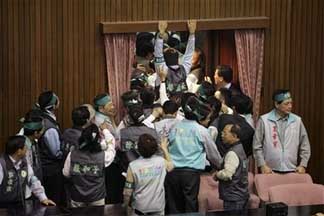
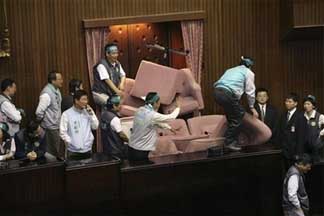


| Anson Chan Voters | Regina Ip Voters | |
| Who did you vote for in the 2004 HKI
Legco election? DAB Rita Fan Democratic Party Audrey Eu/Cyd Ho Tsang Kin-sing Did not vote (including did not register to vote) Not a resident of Hong Kong Island Do not recall |
1% 5% 27% 21% 1% 16% 2% 26% |
20% 20% 2% 5% 0% 22% 2% 27% |
| Do you support or oppose double
universal suffrage in 2002? Support Neutral Oppose Don't know/hard to tell |
81% 11% 3% 5% |
38% 28% 19% 16% |
| Did you ever participate in any of the
July 1st marches? Yes No |
45% 54% |
13% 87% |
To simplify matters, the notion of the 'iron' leftist
votes is that these people will vote whatever the 'party' tells them
to. Rain or shine, they will come out and do the bidding of the
'party.' In the case of Regina Ip, the assumption may be that she will
collect all the DAB "iron" votes plus whatever
"pro-China" votes that Rita Fan got. In the 2004 Legco
election, the DAB list and Rita Fan got around 140,000 votes. In the
2007 by-election, Regina Ip got just under 140,000 votes, but only 20% + 20%
= 40% recalled that they had voted for DAB/Rita Fan last time. How
"iron" could the DAB/Rita Fan votes be? If anything, Anson
Chan got more 'iron' democratic votes.
Relevant Link:
(in translation)
Above all, I am interested in the HKU analysis of the backgrounds of the voers. Among Anson Chan voters, only 27% voted for Martin Lee in 2004. At the time, Martin Lee had around 120,000 votes, so does that mean that Martin Lee has only 40,000 or so votes left?! Even if you add all of the 26% who could not recall whom they voted for, this is just over 50%. So Martin Lee has lost 60,000 votes. What is hapening with the pan-democrats?
As for the leftists, 22% of the Regina Ip voters were new voters, higher than the 16% for the pan-democrats. This showed that the leftists are better at cultivating new voters! Anson Can drew 5% of Rita Fan's supporters; similarly, Regina Ip drew 5% of Audrey Eu's supporters. This proves that some of the Hong Kong Island supporters of the Civic Party and Rita Chan can be peeled away. The key is how and who!
48% of the Anson Chan voters chose Audrey Eu or Martin Lee in 2004. 40% of the Regina Ip voters chose Rita Fan or the DAB in 2004. From this, it may be inferred that the pan-democrats rely on the "iron" vote even more. I want to say that in 2004, there was the July 1st effect and also Martin Lee was listed second on the Democratic Party list. This led to many of the uncommitted voters to come out to vote, resulting in a 57% voter turnout. That was how Martin Lee got 120,000 or so votes (and the pan-democrats got 200,000 or so votes when Audrey Eu is added).
In this election, the voter turnout was 52% and the pan-democrats got 170,000 votes. If the pan-democrats did not have Anson Chan as the canddiate, would they have gotten as many of the 2004 supporters of the pan-demcorats to vote? I can only say that if the candidate had been Kam Nai-wai or Cyd Ho, many of those people would not have voted. Anson Chan lost 30,000 votes; how many more would have been lost if the candidate had been someone else?

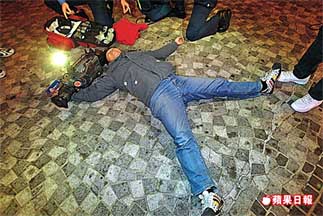



(SCMP) Chan 'flabbergasted' by attack. By Ambrose Leung and Eva Wu. December 6, 2007.
The secretary for home affairs yesterday accused new lawmaker Anson Chan Fang On-sang of being a "sudden democrat" who "suddenly cares about people's livelihood". The former chief secretary decried the comments by Tsang Tak-sing as a "provocation and personal attack" and her allies demanded an apology for what they called a public humiliation of Mrs Chan on her first day in Legco. But Mr Tsang did not respond to calls for him to withdraw the remarks he made during a Legislative Council motion debate on social enterprises.The row erupted when Mrs Chan, after being sworn into office, gave her maiden speech during the debate, in which she thanked the public for their support and the hopes they had placed in her. With reference to her election promises of addressing the widening wealth gap, Mrs Chan said the government should have done more to help people help themselves. "Democracy and people's livelihood cannot be separated and without democracy, there would not be justice and underprivileged groups would not receive the care they should get," she said, adding she had seen the difficulties faced by these groups on her campaign trail.
But Mr Tsang, who was speaking on behalf of the government, launched an attack on Mrs Chan. "She said she discovered about the difficulties faced by the members of public during her campaign. So apart from being suddenly democratic, she also suddenly cares for people's livelihood," Mr Tsang said. Saying Chief Executive Donald Tsang Yam-kuen had already pledged to improve the economy and people's livelihood, the home affairs secretary pointed out that Mrs Chan was in charge of economic and social welfare when she was in the British colonial government. "Our new legislator today is a former official ... Unless she believes that colonial rule was democracy, I don't know whether she has worked for people's livelihood or officials' livelihood," said Mr Tsang, who was jailed for two years for distributing "inflammatory leaflets" during the 1967 riots. "Perhaps her name should not be On-sang, but Koon-sang," he said, using the Cantonese for "officials' livelihood".
Speaking after the meeting, Mrs Chan said: "I was absolutely flabbergasted that a bureau head should say such words. It seems to me to be a personal attack and it is really quite uncalled for. I was merely reiterating what was in my election platform." She also said: "I hope this is an individual case and does not represent the government's stance."
Mr Tsang's spokeswoman said the minister "had nothing to add" when asked whether he would withdraw his remarks and apologise, and whether his remarks represented the government's stance.
(The Standard) Chan slammed in Legco debut. By Carol Chung and Carrie Chan. December 6, 2007.
Newly sworn-in lawmaker Anson Chan Fang On-sang and a top government official locked horns yesterday, unleashing what may be a harbinger of more flare-ups in the future. Chan was labeled a "sudden supporter for livelihood" after her maiden Legco speech on an innocuous social enterprise motion debate. The remark was made by Secretary for Home Affairs Tsang Tak-sing, who is also a Hong Kong deputy to the National People's Congress. Pan- democrat lawmakers immediately demanded an apology and a retraction.Chan had said during her speech: "Speaking for the public and caring for the poor is my election pledge. I have the responsibility to speak for the public."
Her words riled Tsang, who shot back: "The new lawmaker today was a top official in the past, once in charge of economic and welfare issues under colonial rule. Unless she believes there [was] democracy under the colonial rule, I don't know whether she was doing the work of livelihood or that of an official. She said she has seen the bitterness in people's lives during the election campaign - apart from being a 'sudden democrat' [she's] a sudden supporter for livelihood."
Chan sat stone-faced during Tsang's tirade.
民政事務局局長曾德成在發言時說:「今日的新議員,是昔日的舊高官,她對特區政 府提出了批評,她還贊成說沒民主,就沒民生……記得她曾經在英國殖民統治之下,主持過經濟和福利方面的工作,除非她認為殖民統治就是民主,否則我不知道她 當時所做的,到底是否民生的工作,還是『官生』的工作。或者不叫『安生』,是『官生』才對。她說在競選期間,知道了民間疾苦,原來除了忽然民主之外,還會 有忽然民生的。」
Mr. Secretary for Home Affairs Tsang Tak-sing, what entitles you to insult Mrs. Anson Chan Fong On-sang for no reason? Is it because you are a bureau chief?
But your Chief Executive was elected by a small circle of 800 persons and he appointed you based upon reasons that people don't know about. Mrs. Anson Chan Fong On-sang was elected by more than 170,000 voters on Hong Kong Island who constituted more than half of the people who voted that day. Her acceptability and representativeness are so much better than yours. So Secretary Tsang, what entitles you to publicly insult Mrs. Chan?
Mr. Secretary for Home Affairs Tsang Taksing, what entitles you to publicly insult a Legislative Councilor elected under universal suffrage in the Legislative Council chamber? Is it because you hold a senior position that wields huge powers?
[ESWN blogger's comment: The above leads to an interesting question: Is it alright to hurl personal insults and attacks at the legislative councilors for the functional constituencies? After all, they were elected by small circles of people.]
(Ming Pao)
Tsang Tak-sing's comments were inappropriate because he targeted the person and not the matter at hand. He targeted Chan Fong On-sang and he did not try to reason. Actually, he could have calmly rebutted the theory that "no democracy" means "no people's livelihood," and he could have also pointed out that Chan Fong On-sang had been resopnsible for economic and welfare work during the British colonial administration. If he had stopped there, it would have been a reasoned reply. But he went unnecessarily further and made word play on Mrs. Chan's name by saying that she should be called "Koon-sang" (official's livelihood) instead of "On-sang. ...this is going too far, and this is disgraceful.
[ESWN blogger's comment: Whereas Tsang Tak-sing was direct, Secretary for Commerce and Economic Development Frederick Ma Si-hang was subtle in a story that the English-language media (such as The Standard) did not report on.]
In discussing accountability for the under-performance of Hong Kong Disney World, Secretary for Commerce and Economic Development Frederick Ma Si-hang said sarcastically: "I have spent a lot of time reading the meeting notes back then. At the time, many legislators were present and many officials also sat in. So I won't say which officials should be held responsible and which other officials should not be." The so-called senior official that Ma is referring to was also surely Anson Can as she took part in the decision to construct Disney World.
(Ming Pao) LSZ's column.
Scecretary Ma did not mention any specific names. But informed government sources said that Ma discovered that on November 3, 1999, a team of government officials led by then Chief Secretary Anson Chan attended a special Legco meeting during which they sold the accord reached between the HK SAR government and Walt Disney company. At the time, Secretary for Finance Donald Tsang was away on vacation. The sources said that if Audrey Eu had persisted, Secretary Ma would have named Mrs. Chan and Audrey Eu might be embarrassed about damaging someone on her own side.
Yesterday Civic Party members insisted the decision belonged to then Secretary for Finance Donald Tsand and he the person who has to bear responsibility for the Disney situation for making the financial arrangements. Although all members of the Executive Council participated and approved the accord, Donald Tsang was ultimately responsible. But Civic Party Legco member Ronny Tong said last night that he does not intend to determine who is to be held responsible on the Disney situation, because the accountability system was not yet in place back then.
It seems that the biggest lesson in this incident is that in the future, when the pan-democrats want to settle old accounts with the government, they might have to check if Mrs. Chan was involved or else they could get the wrong target.
[ESWN blogger's comment: That last paragraph appears to assume that the interest of a political party supersedes the interest of the public that it is supposed to serve. Do you agree? Does a person have to give up his/her own sense of right vs. wrong upon joining a political party? And who decides what is right vs. wrong for the political party? The party bosses?]
Once upon a time, there was a CCTV poll on the South China tiger affair.
Respondents were asked to choose among three mutually exclusive and exhaustive answers to the question: "How do you view the South China tiger affair?"
(1) The photographs are real and there really is a South China tiger out there
(2) The photographs are fake, but there still may be tigers out there
(3) The truths and lies out there are impossible to puzzle out
In time, CCTV announced the poll results:
2638 votes for: The photographs are fake, but there still may be tigers out there
515 votes for: The photographs are real and there really is a South China tiger out there
439 votes for: The truths and lies out there are impossible to puzzle out
5 votes for: The photographs are fake and there is no tiger out there.
Additional essay question for bonus points: How did the five people manage to vote? More specifically, which radio button did they choose?
(Hong Kong Economic Times via Leona Wong)
Yesterday, more than 50% of the voters participated to vote in the Hong Kong Island Legco By-election. No matter what the results are, this proves that the citizens are enthusiastically participating in public affairs.
The imperfection in this election that even though there were high-quality candidates, it did not elevate the rationality and maturity of the voters. This deserves further thought all around.
First, the election issue was concentrated on the battle between 'democracy' and 'non-democracy.' As such, it did not fully feature the familiarity of the two ex-government officials with governance and political ideas ... it reduced the by-election into a battle of saliva over who is "truly democratic" and who is "suddenly democratic," or whose image had the better packaging.
Secondly, although Anson Chan had a clear lead over Regina Ip in the public opinion polls, the democrats were making "emergency appeals" over the past few days to ask the voters to vote in order to counter the "iron" votes of Mrs. Ip.
These "emergency appeals" may have the effect of pumping up the support of those who Anson Chan and oppose Regina Ip, but it also demeans the voters. This includes demeaning the voters who cast their votes for Regina Ip by calling them incapable of independent thinking. It also demeans the right to choose by the voters who support democracy because of the belief that they would not have voted if it were not for the emergency calls.
Let me add two further observations about the tactics in this election. This is a preview of what will likely happen in the 2008 Legco elections.
First, this is the first time that an SMS campaign has been mentioned as a factor. A number of people received SMS messages on their mobile telephones to vote for Regina Ip.

The assumption so far is that it must be coming from the supporters of Regina Ip. That is not certain. What is certain is that the impact of these SMS messages has been negative. This means that the SMS messages has the potential of becoming a negative campaigning tool -- just flood people's mobile telephones with crassly phrased messages purportedly from your opponent!Secondly, there is the role of Apple Daily and its freely distributed extra edition on election day urging people to vote for Mrs. Chan. If this is fair game, then you should expect all sorts of free newspapers issuing emergency calls for their preferred candidates on election day the next time. And any candidate who does not have a newspaper backer is screwed.
On the eve of World AIDS Day, Premier Wen Jiabao traveled to Wenlou village, Shengcai county, Henan province to visit AIDS patients and orphans. In the morning, Wen sang songs with the children at an AIDS orphanage. In the afternoon, Wen visited a clinic and then he went to visit a couple and their four adopted AIDS orphans.
Chinese Premier Wen Jiabao is known to have said that he wans to hear the truth and that only democratic supervision can guarantee that things work. But when he went to Wenlou village, the local Henan authorities organized 1,600 public security officers to pose as local residents to welcome him. Meanwhile, certain outspoken AIDS patients and activists were placed under house arrest.
According to The Guardian, the villager Ma Shenyi, who is a widoer tring to rear three children, said that the plainclothes police came to his home and warned him not to go out. Ma said, "I don't understand that when the Premier comes to visit us, real villagers are not allowed to meet him. The only people who can meet Premier Wen are those who are paid to say nice things."
Quiz: How many plainclothes policemen are in this photograph?Related Link: The premier’s visit to China’s most infamous AIDS village Black and White Cat


Bonus (How To Make Sure That Your Prediction Is Absolutely Correct) (1-555-CONFIDE) The expert scholar Ma Ngok:
RTHK (December 3, 2007, 2:02) According to associate professor Ma Ngok from the Chinese University of Hong Kong Department of Political and Administrative Sciences, Anson Chan will ultimately get 10% more votes than Anson Chan.
Apple Daily (November 31, 2006) The analysis of election scholar Ma Ngok is very close to that of the pan-democrats. He said that Mrs. Chan's election project as well as her lackadaisical performance at the election debates could not mobilize people or highlight her superiority to Mrs. Ip. Furthermore the DAB just won big and yesterday's CUHK public opinion poll showed that the DAB is the political party that represents the interests of the people best. Therefore, he believes that the DAB supporters will come out and vote Mrs. Ip. Some neutral voters will be influenced by the smears on Mrs. Chan to vote for Mrs. Ip instead. Therefore, he estimates that Mrs. Chan will lose the election.
(Latin America News Review) Message to the Venezuelan Opposition: Sorry, Suckers. By Justin Delacour. November 29, 2007.
Anyone who knows anything about Venezuelan polling knows that the pollster Germán Campos does not mess around. Every electoral projection I've seen from him has proven accurate. In fact, of all his electoral projections that I've seen, none has overestimated Chavez's margin of victory.
Unlike the rest of Venezuela's pollsters, Campos understands the basic principle that partisan politics and political polling do not mix. (As you might have recognized by now, I could never get into the business of polling because I wear my politics on my sleeve, just as Venezuela's opposition pollsters do).
If Campos has the "Yes" campaign up by 16 points among likely voters, you can pretty much rest assured that "No" is going down.
The problem right now is that a number of openly opposition pollsters appear to be cooking their numbers in favor of the "No" campaign so as to either increase opposition turnout in the Sunday referendum or to lay the groundwork for claims of "fraud" in the aftermath of another impending defeat. For some time, the concern among the opposition pollsters has been that some in the opposition's ranks would abstain from the vote. Thus, the strategy of the opposition pollsters is to fluff their numbers at the last minute so as to either boost morale among their ranks (and thereby boost their side's turnout) or to lay the groundwork for claims of "fraud." We can get a glimpse of what's happening by contrasting Datanalisis' cooked numbers with what the firm's director actually says about the probable outcome of the vote.In Hong Kong, the strategy of overstating the leading margin in order to claim fraud later on is not applicable. The Hong Kong electorial system is very transparent and it is improbable that fraud can occur (e.g. "disappearing" the ballots for a certain candidate systematically across many polling stations). Therefore, the second strategy listed above may be excluded. The first stragegy listed above about "fluffing their numbers at the last minute so as to boost morale among their ranks (and thereboy boost their side's turnout)" has occurred. After all, the meta-margin of the polls was 12% and yet both sides were making "emergency appeals" in the evening. But that is alright, because these are just tactics that the voters will eventually learn to ignore in the future.
The other relevance of Venezuala is the presence of 'external influences.' On one hand, there is a purported memo from an American embassy official, Michael Middleton Steere, addressed to the Director of Central Intelligence, Michael Hayden. The memo was entitled 'Advancing to the Last Phase of Operation Pincer' and updates the activity by a CIA unit with the acronym 'HUMINT' (Human Intelligence) which is engaged in clandestine action to destabilize the forthcoming referendum and coordinate the civil military overthrow of the elected Chavez government (see Venezuelanalysis.com). On the other hand, it was reported in Hong Kong that many tourist buses showed up in Taikoo City this morning... (see PlasticHK). The magnitudes of 'external influences' applied to Hong Kong versus Venezuela are obviously absurdly different. What is for certain is that the campaign would be more than some SMS sent from unknown parties in the case of Hong Kong:


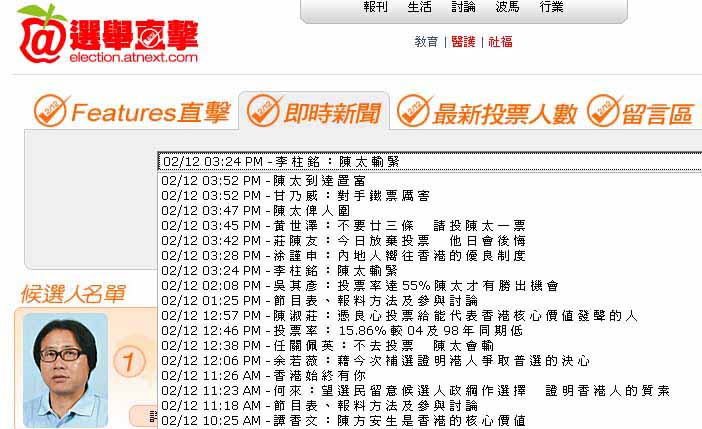
Time of Day 2000 HK Island Legco By-Election 2004 HKSAR Legco Election 2007 Hong Kong IslandLegco By-Election 8:30am 0.53 1.31 1.10 9:30am 1.99 3.92 3.48 10:30am 4.34 7.85 7.20 11:30am 7.04 12.42 11.48 12:30pm 9.74 17.06 15.86 1:30pm 12.15 21.23 19.68 2:30pm 14.62 25.57 23.75 3:30pm 16.99 29.82 27.51 4:30pm 19.34 34.04 31.38 5:30pm 21.61 37.96 34.79 6:30pm 23.91 41.91 38.33 7:30pm 26.12 45.70 41.71 8:30pm 28.22 49.59 45.03 9:30pm 30.51 53.13 48.31 10:30pm 33.27 57.62 ~52.00
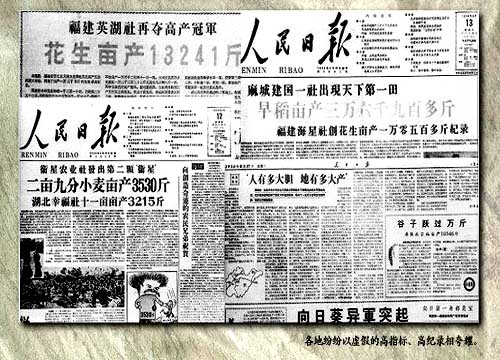
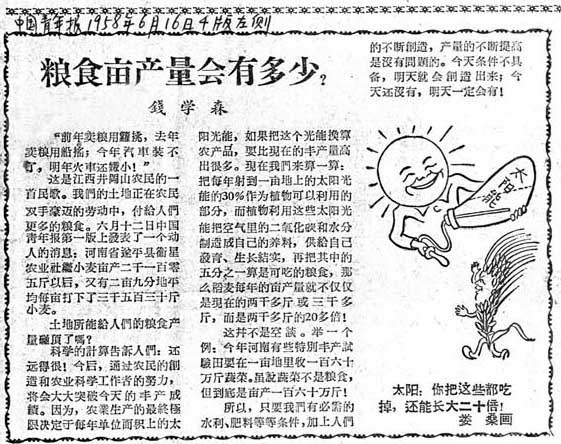
Archives